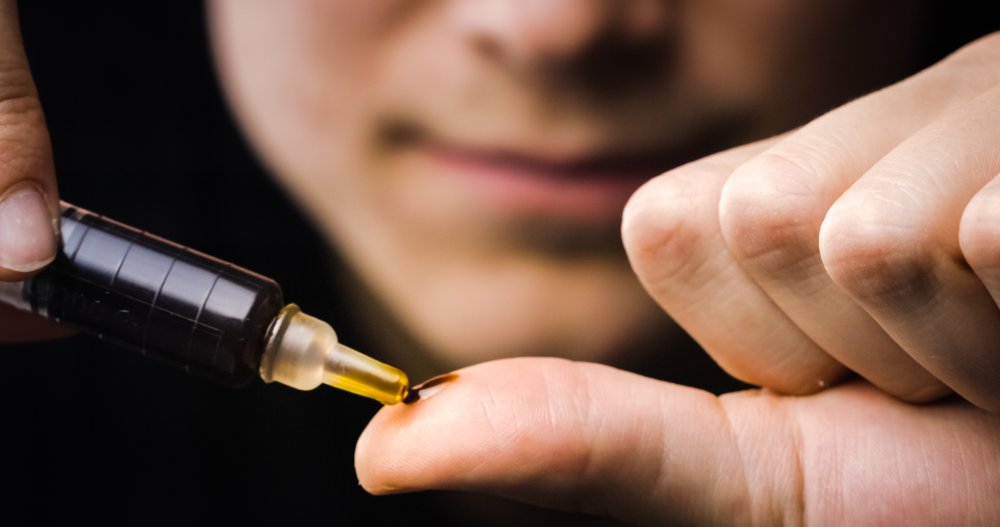What is CBG and what are its effects? You will be surprised!
But CBD isn’t the only cannabinoid that helps your health. Even though it’s not as popular, CBG can help with a wide range of health problems.
CBG? Do you mean CBD?
There are more than 100 cannabinoids in the cannabis plant. The most popular and well-known of these are tetrahydrocannabinol (THC) and cannabidiol (CBD). Although CBG is not as popular, it is also one of the main cannabinoids and plays an important role in the plant.
THC is the substance responsible for the known psychoactive effect that marijuana provides. While CBD alone won’t give you that feeling, it does provide a wide range of health benefits, making it one of the biggest discoveries of recent times for many people.
THC and CBD are the most abundant compounds found in cannabis plants. But the amazing thing is that they both started out as CBGs.
Thanks to millions of years of evolution and photosynthesis, cannabis plants produce cannabigerolic acid (CBGA). With the help of specific enzymes and many chemical processes, CBGA is eventually converted into THC, CBD, and CBG.
Most CBGA is converted into CBD and THC, and only a small fraction of the original acid ends up as CBG. Although cannabigerol has a lower concentration than both of these better-known compounds, it can provide many benefits on its own.
What are the benefits of CBG?
Thanks to the recent legalization of medical marijuana in many European countries, and the legalization of recreational marijuana in countries such as the U.S. and Canada, researchers can now thoroughly explore the benefits of cannabinoids. Although CBG has been overlooked in the past — largely due to its low concentration — recent research shows that it has the potential to help people with multiple diseases and manage more complex medical conditions.
A study published in 2013 at the University of Naples shows that CBG can help with IBD due to its anti-inflammatory properties. The study found that cannabigerol significantly reduced inflammatory markers in mice with IBD and alleviated colitis.
Based on these successful results, the researchers suggest that CBG could be used in human clinical trials as a treatment for IBD. If CBG’s anti-inflammatory effects are proven in humans, it is likely to be used to treat other diseases.
One wonders why someone would want to go through all the hassles of using cannabinoids just to get rid of a negligible amount of bacteria. However, humanity is facing a growing threat from antibiotic-resistant bacteria.
Bacteria such as methicillin-resistant Staphylococcus aureus (MRSA) are resistant to conventional treatment and affect millions of people each year. A new antibacterial agent like CBG may be just what the world needs. In fact, a study presented in 2008 found that cannabigerol has significant antibacterial activity.

People on various online sources claim that cannabis infusions help with bladder dysfunction. So in 2015, a team of Italian researchers produced a study to test these claims.
Researchers have found that CBG reduces cramps in the bladder and can help with any problems.
You may have noticed that smoking marijuana increases your appetite. One minute you’re lying on the couch, and the next you’re eating chocolate-flavored ice cream straight from the fridge.
According to a 2016 study published by the University of Reading, CBG is responsible for increased appetite. In this study, rats that ate CBG increased the number of meals they ate on their own, doubling their food intake.
It is estimated that about 1 percent of American women suffer from anorexia during their lifetime. Of these women, as many as 50 percent suffer from disorders such as anxiety or depression. CBG can help these women overcome their eating disorders and improve their mental state.
According to a 2015 study, CBG acts as an antioxidant in the brain, which means it can protect the nervous system from damage. The study shows that cannabigerol acts as an extremely active neuroprotective drug in mice. The cannabinoid improved motor deficits and thus protected neurons from toxicity.
The study also shows that a dose of CBG leads to moderate improvements in the expression of certain genes, which may help with Huntington’s disease.
Thanks to its antioxidant and anti-inflammatory properties, cannabigerol supports the body’s fight against cancer. A study presented in 2014 concluded that CBG may be able to inhibit the growth of cancer cells. Thus, the administration of cannabigerol may prevent the development of colorectal cancer.
In addition, the study shows that CBG may have anti-cancer properties, meaning that the cannabinoid could be used in the future not only to treat but also to prevent cancer.

Medical marijuana has been used to treat glaucoma for decades. According to research, CBG improves fluid drainage from the eye and reduces intraocular pressure.
In addition, the cannabinoid acts as a vasodilator in the eye and improves its blood supply. This effect allows more blood to flow into the eye, which is also richer in oxygen, which can be useful in treating other eye conditions.
Is CBG legal?
Cannabigerol is not psychoactive, so it will not cause the aforementioned effect in you. In addition, CBG can be extracted from hemp, so the vast majority of CBG products do not contain THC.
In Europe, cannabigerol is currently legal in the UK and all EU countries provided it is extracted from cannabis plants and not marijuana. However, EU regulations also state that CBG products with a THC content of more than 0.2 percent are illegal unless smoking marijuana is legal in the country.
The most popular cannabigerol products are CBG isolate, CBG oil, and CBG crystals. Because cannabigerol offers many different benefits, most consumers will buy it to improve their health and mental well-being.
CBG – Final Summary
CBG may not have the notoriety of THC and CBD, but that doesn’t mean it should be worse. While most research on cannabigerol is still in its infancy, what we know about the cannabinoid so far looks very promising.
Due to the wide range of benefits that cannabigerol offers, scientists will certainly continue to study it, so only time will tell how this cannabinoid specifically affects us.
Author: Patricie Mikolášová
PHOTO: Shutterstock
“All information provided on this website, as well as information that is provided through this website, is for educational purposes only. None of the information presented herein is intended to be a substitute for medical diagnosis and such information should not be considered medical advice or recommended treatment. This website does not endorse, approve or defend the permitted or prohibited use of psychoactive or psychotropic substances, or the performance of other illegal activities. For more information, please refer to our Disclaimer.”


